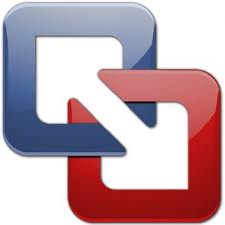I have a complex set of office productivity needs, and struggle to find products (services) that fit my particular situation. Even though my business assets live in the cloud, I’m often without a high-speed network connection – so also have to keep critical things stored locally. I juggle several email identities, keep two Macs synchronized, and live in a still-sometimes-Windows application world. Here’s unsolicited applause for a few products that meet my challenge.
1. Postbox. Managing a half-dozen email accounts isn’t for the faint of heart, and Apple’s native email client isn’t up to the task. (Most of my accounts live on gmail, which my browser can only access one at a time.) I finally jettisoned Outlook 2011 after another year of wrestling with lost mail, poor performance, huge caches, infantile online help and colorful swearing. Postbox is one of the few independent mail clients products still thriving: it has effortless self-configuration and smoothly handles an assortment of oddly configured servers. It also keeps me out of the Apple-Google-Microsoft blame game of “accidentally” incompatible upgrades.

2. SugarSync. I do my best analytic work on a big, fast, heavy desktop Mac anchored at Mironov Consulting World HQ. I take a Mac laptop on the road, though, and never know what training presentation or agile template or theoretical log-log pricing curve will be needed at a moment’s notice. So I keep 20GB+ of assorted files continuously synched between machines. SugarSync does this intelligently, provides cloud backup/disaster recovery, and gives me full web access in case my laptop goes pear-shaped.
3.
 LastPass
LastPass. I routinely log into about 15 websites, often as more than one user (with several email handles, bank accounts, agile project trackers). One site requires 8+ letter passwords with no special symbols, another demands upper+lower+digits and insists I never re-use my favorite sequence. I’d been keeping this mess in a spreadsheet with 110+ ID/password pairs. Not scalable, very frustrating, occasionally a disaster. LastPass saves and encrypts all of these in the cloud, syncs them across machines and different browsers, and gives me an online vault for the entire collection. Earned back its $12/year within an hour.
4.

VMware Fusion. Some key Windows applications are missing or unsupported on the Mac and in the cloud. So until desktop apps go the way of the Berlin Wall, I need a reasonable Windows emulator. VMware Fusion runs Quicken for me (since the Mac and cloud versions are dumbed down), communicates with clients who insist on Cisco VPNs (which are badly out of date for Mac), and lets me smoke-test hosted apps on IE 8/9.
4.5 One unified calendar. Thirty years into the PC revolution, and a decade into mobile, common calendaring shouldn’t even warrant a mention. Yet I’ve found only workarounds to the apparently trivial daily question: “when can all four of us get a conference call?”
My Exchange-based clients each issue me an internal email handle (mironov@that-client.com), which connects to their company-specific calendar. My other appointments don’t appear there, so automatic meeting pickers assume I’m always available. I’d love a way for mail servers to know when I’m unavailable, avoiding another blizzard of “how about 930 EST instead of 830PST?” messages. Even better, a unified calendar would tell me where I’m supposed to be. How to merge multiple calendars on disparate servers and services? My eternal gratitude to anyone who knows how.

My current half-solution – earning it a partial score – uses Google Calendar, lots of invitation forwarding, and apologies when someone’s auto-scheduler double-books me. (Keeping placeholder events manually sync’d on 3+ systems has proven unworkable.) One useful GCal feature is its public view, where I send people to pick from what’s open – if they are willing to look.
This feels like a market opportunity for some neutral third party that can maintain cordial relations with Apple, Google and Microsoft.
Sound Byte
There are some great products and services out there. If you have one you love, tell the world. It sustains them financially, and their product teams rarely hear unsolicited praise.

